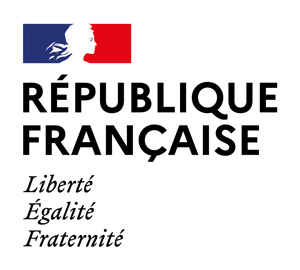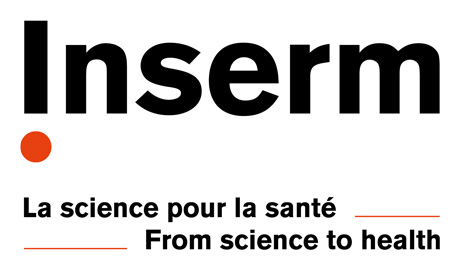





PhD position: Data-driven methods for the diagnosis and prognosis of speech perception deficits in brain stroke
Application deadline: Feb 15th, 2022
Start date: April 1st, 2022
The Femto Neuro group is seeking applicants for a fully-funded PhD position (3 years), to be held in the System Data Science group, Departement of Automation and Robotics, FEMTO-ST Institute in Besançon, France.
The position is funded by CNRS, with the generous support of the French Fondation pour l’Audition, for a project seeking to improve the diagnosis, prognosis and rehabilitation of hearing disorders in stroke survivors. It provides an exciting opportunity for interdisciplinary research training in data science and system modeling, cognitive neuroscience and health technology.
The position is based in the FEMTO-ST Institute in Besançon, France, and will be co-supervised by Dr Jean-Julien Aucouturier (FEMTO-ST, Besançon) and Dr Marie Villain, in collaboration with Prof. Lionel Naccache (Brain & Spine Institute, Hôpital Salpêtrière, Paris).
The science
Hearing impairments concern up to 86% of brain-stroke survivors, a 38% excess compared to controls of the same age, yet stroke-related hearing is not as well studied as the more obvious symptoms of aphasia or motor loss (Koohi et al. 2017). The objectives of this PhD project is to improve the diagnosis, prognosis and rehabilitation of hearing disorders in stroke survivors. Specifically, the successful applicant will study impairments of speech prosodic perception (e.g. not being able to tell apart a question from an affirmation) using a novel data-driven system modeling, reverse correlation.
The rational of the reverse correlation technique is to uncover a listener’s mental representation of certain prosodic patterns (e.g. the different intonation of “really?” vs “really!”) by analysing a large set of responses to random stimuli. In our recent work in healthy participants, we have used reverse-correlation e.g. to uncover what are the prosodic signature of dominant or trustworthy speech (Ponsot et al., PNAS 2018), or how listeners detect whether they’re being told truth or lies (Goupil et al. Nature Communications 2021). Turning to clinical applications, we have collected recent pilot data in stroke patients that show that mental representations derived with reverse-correlation reveal hearing abnormalities that can be related to the severity of the lesion (Figure below, C) and its temporal evolution (D).

Figure: Preliminary data on the mental representations of interrogative prosody extracted by reverse-correlation in a group of n=11 controls (orange), and n=9 stroke patients (blue). A: group averaged of the representations. As predicted, in controls, the prosody associated with interrogative judgments shows a clear pitch increase at the end of the second syllable, but the pattern is attenuated in the patient group. B: Individual patient data, compared to control group, for a subset of 6 patients. Top: close to normal representations; bottom: abnormal representations. C: The distance between a patient’s representation and that of the control group scales as a function of lesion severity, indexed by number of month post-stroke at the time of inclusion. D: Weekly representations for patient 3, measured on three consecutive weeks.
Building on these preliminary results, the successful applicant will, first, participate in a prospective diagnostic study on N=60 stroke patients and controls, in order to evaluate the relevance of reverse-correlation data as a marker of prosodic impairments. Second, he/she will use this novel patient data for theoretical investigations such as lesion-symptom mapping, in order to better understand how prosodic processing differ between patients and controls. Finally, they will develop a novel mobile audio-health platform to facilitate the adoption of the reverse-correlation procedure in clinical practice and to collect remote patient data to assist medical decision-making.
The PhD project thus provides an exciting opportunity for interdisciplinary research training in data science and system modeling, cognitive neuroscience and health technology.
Goupil, L., Ponsot, E., Richardson, D., Reyes, G. & Aucouturier, JJ. (2021) Listeners perception of certainty and honesty of another speaker is associated with a common prosodic signature. Nature Communications, vol. 12, 861.
Koohi, N., Vickers, D. A., Lakshmanan, R., Chandrashekar, H., Werring, D. J., Warren, J. D., & Bamiou, D. E. (2017). Hearing characteristics of stroke patients: prevalence and characteristics of hearing impairment and auditory processing disorders in stroke patients. Journal of the American Academy of Audiology, 28(6), 491-505.
Ponsot, E., Burred, JJ., Belin, P. & Aucouturier, JJ. (2018) Cracking the social code of speech prosody using reverse correlation, Proceedings of the National Academy of Sciences. Vol. 115 (15) 3972-3977.
The environment
The successful applicant will join the FEMTO Neuro group, a small, recently-established interdisciplinary group of scientists (currently 2 PIs, one postdoc, two PhD students) exploring control-systems approaches to the analysis of human sensory electrophysiology. The Femto neuro group is part of the larger System Data Science team, a concentration of 7 faculty working on data-driven analysis, pronostic and health management of natural, industrial and environmental systems (head: Prof. Jean-Marc Nicod), and based in the Department of Automation and Robotics, FEMTO-ST Institute in Besançon, France.
Work in the Neuro group is both experimental (we collect our own EEG and behavioural data) and computational (we build our own software methods), with a strong focus on clinical applications (see our recent work here). The group also has a strong focus on open science, and develops and maintains a number of free, open-source research software which are made available for the research community. In Besançon, the PhD candidate will be supervised by Dr Jean-Julien Aucouturier (Directeur de recherche CNRS), and will also have numerous opportunities to interact with clinical collaborators Marie Villain and Lionel Naccache in Paris.
With more than 750 researchers, the FEMTO-ST Institute (CNRS/Université de Bourgogne Franche-Comté) is the region’s largest engineering CNRS lab, with expertise covering all fields of system science. The neuro group is based in FEMTO’s Department of Automation and Robotics, which hosts about 80 researchers active in the fields of robotics, mechatronics, automatic control and artificial intelligence.
A world-heritage UNESCO site close to the French-Swiss mountains of Jura, Besançon is a vibrant, mid-size regional capital city regularly ranking best-in-France for its quality of life and surface green spaces per inhabitant, but also boasts a newly-federated university (Université de Bourgogne Franche-Comté) of more than 50k students.
Applicants
The ideal applicant for this position holds a Master of Science (M2 Recherche) with a background either in computational modeling (e.g., data science, computer science, control engineering, applied mathematics) with an interest in neuroscience, or in experimental psychology/neuroscience with an interest in computational methods (e.g., computational neuroscience, psychophysical data modeling).
The project offers the best training potential for applicants who already have experience analysing experimental data (e.g. behavioural, psychophysical, electrophysiology or brain imaging data), and have a solid programming background in Python, R or Matlab. However, more than a formal background, drive is crucial for success in science, and a good number of past lab members (see some of our alumni) have developed their computational skills only after joining the group. Clinical neurophysiology needs more quantitative scientists, and we also see it as part of our mission to educate the next generation of neuroscience practionners and professors in computational approaches.
Finally, to fully enjoy this project, the ideal applicant is also likely to have a specific interest in hearing science, sound perception, language therapy and/or clinical applications in neurology.
How to apply
Submit (1) a resume, (2) a cover letter (notably detailing the applicants’ experience in data analysis) and (3) the name of 2 academic referees able to provide a recommendation (no reference letters are needed at this stage) on the CNRS employment portal:
https://emploi.cnrs.fr/Offres/Doctorant/UMR6174-JEAAUC-001/Default.aspx. We will consider all applications received on the CNRS portal by Feb 15th, and give feedback to applicants shortly after that.
If you have questions, informal enquiries are also welcome by email to JJ Aucouturier (aucouturier@gmail.com) & Marie Villain (marie.villain@aphp.fr).
Deadline for application: 15 February 2022